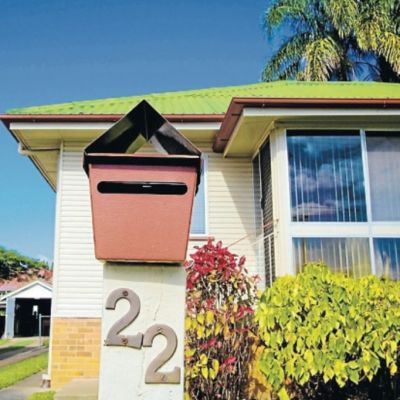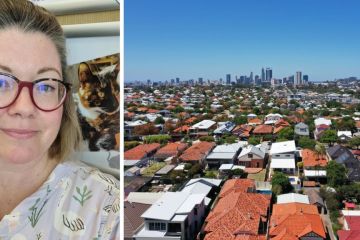It's becoming harder for Australians to pay off mortgage by retirement than ever

Australia is the world’s most indebted country and more older Australians will now retire with a mortgage debt than ever before, a new report shows.
An increasing proportion of Australians will probably need to use some of their superannuation savings to get rid of leftover mortgage debt at retirement, the report prepared by economist Saul Eslake for the Australian Institute of Superannuation Trustees found.
The retirement income system had taken it for granted that Australians would have paid off their mortgages over the course of their working life, but the research found larger mortgages relative to incomes and first-home buyers getting on the ladder later in life were making this less likely.
The proportion of home owners who did not have a mortgage dropped from 61.7 per cent in 1996 to 47.9 per cent by 2011.
“In other words, compared to 15 years ago when almost three out of five home owners owned their home outright, home owners with a mortgage are now in the majority,” Mr Eslake’s research found.
In 2013-14, 88.2 per cent of homeowners aged 35 to 44 had outstanding mortgage debt. This was up from about 67 per cent in 1995-96.
One couple bucking the trend is Ai Shin Cruz, 31, and her husband Erik, 36 who paid off their Sydney mortgage in eight years and four months – and it was their first home.
But while they say they wouldn’t have been able to achieve it without frugal habits, they are also the lucky ones: they bought in pre-boom.
The couple bought a townhouse in November 2008, for $320,000. They had $110,000 in savings between them – having both saved while living with their parents – and were getting married in 2009.
After the first home owner grant and stamp duty concession, their mortgage came to about $210,000.
With a household income of just $65,000 for the majority of that time – Ai Shin is a stay at home mum and Erik works in IT – they’d paid off the entire sum by March 2017 – as well as raising three children, now aged six, four and one.
They attribute their success to “being minimalist” and refusing to buy into the idea of keeping up with the Joneses.
“My mum is a Vietnamese refugee from the 1970s and she’s a penny pincher,” Ms Cruz said.
“It’s ingrained in me … I still find it very difficult to spend money.”
But even this frugal couple counted their blessings they were able to buy when they did, Ms Cruz said.
Similar properties in Toongabbie have recently sold for about $600,000. “We’re committed to never having a mortgage again,” she said.
Though in Sydney or Melbourne the thought of a $210,000 mortgage can only be scoffed at – in NSW, the size of the average mortgage jumped tens of thousands of dollars each year during the property boom – the average Australian mortgage is $375,900, a sum that could quickly be paid down with some planning, Finder.com.au spokeswoman Bessie Hassan said.
Those on a 30-year term $300,000 mortgage with a 4.8 per cent rate would save more than $50,000 and cut down their home loan repayment time by close to six years by paying an additional $250 a month.
Changing the frequency of the repayments to fortnightly would result in an extra repayment each year, paying down the loan even faster, and asking for a lower interest rate could prove effective.
Mortgage Choice chief executive John Flavell said it was still possible for borrowers to pay off their mortgage quicker provided they were diligent with their money.
He said they should budget and consider offset accounts and other facilities to reduce interest costs.
“A ‘good’ budget will factor in all of your regular spending habits, showing you how much you spend each month and how much you can save,” Mr Flavell said.
Spending $15 a day for lunch adds up to $75 in a working week. If these funds are redirected to additional payments on a $400,000 mortgage with a 4 per cent interest rate, this can save $77,000 in interest over the life of the loan.
We recommend
We thought you might like
States
Capital Cities
Capital Cities - Rentals
Popular Areas
Allhomes
More










